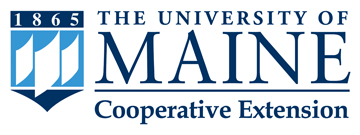
Engage our youth because they will soon be our leaders
By Andrew Hudacs
Regardless of age, we all have a stake in our communities. Yet we often neglect to engage teens and young adults in civic processes. Although they receive many protections, government services and resources, many have little opportunity to contribute their ideas, perspectives or civic services to communities. Without youth input, leaders have less feedback about community assets that foster positive youth development or situations that limit youths’ opportunities to live and grow in safe and healthy environments.
Furthermore, a surprising number of adults are losing faith in our country’s institutions and feel their perspectives are not regarded by civic officials. This decline in trust may continue if our upcoming generations don’t have the interest or opportunity to engage in civic leadership.
Last May, in my work as a faculty member with University of Maine Cooperative Extension, I was fortunate to meet with a group of teens to ask their thoughts about what it means to have a voice in their communities. They emphasized how teens will soon become the adults who will need to enforce the policies created today and live with their consequences, especially for issues related to education and their immediate community.
Although the teens I met with have the passion and energy to become more civically engaged, an alarming proportion of Maine teens are increasingly feeling disconnected from their communities. According to the 2021 Maine Youth Integrated Health Survey, only about half of Maine’s high schoolers feel like they matter to people in their community. Youth need to feel valued to be civically engaged. Moreover, research indicates that teens with positive relationships with community members and organizations are less likely to show risk behaviors like substance use and delinquency.
Furthermore, when there are opportunities available for youth to participate in civic processes, many teens do not know how to be involved. On the 2022 NAEP Civics Assessment, which measured eighth-grade students’ knowledge and skills in democratic citizenship, government and American constitutional democracy, only 22 percent of students scored at or above proficient — the first ever significant decline in scores.
Service-learning opportunities in civic engagement keep our democracy thriving. Specifically, we can create opportunities for youth to be involved in decision making and actions related to balancing our community responsibilities with individuals’ rights and benefits. This kind of service-learning can provide many opportunities for positive youth development, such as building self-esteem, helping youth see themselves as valued community members and developing leadership skills. For example, Wisconsin formalized a program several years ago, which resulted in youth having improved confidence speaking in front of groups and an increased ability to work with others to make change.
I’ve learned from conversations with youth that we don’t need to make our civic processes more entertaining for kids to attend, only to open the door a little wider so that youth can participate. Public officials and civic leaders can welcome teens to civic action by creating processes for youth to participate as youth representatives in public boards or committees to share input about policy issues. Officials should also ensure that, when youth do communicate their ideas, their messages should be heard and valued. Lastly, to support youth who take on community service projects, adults can provide fundamental resources to make their ideas happen, recruit additional supporters and show up to help.
Bringing youth voices to the table is not about giving up power, adding risk to high-stakes decision making or inviting distractions from an agenda. Rather, it is about being better informed in important conversations that impact public resources and plan for the future. Under-representation in civic life can easily lead to marginalization, oppression and apathy. Our communities and world become more just and equitable when all people have an opportunity to be involved.
Hudacs is an assistant extension professor at the University of Maine Cooperative Extension for 4-H Teen Leadership and Workforce Development and coordinator for the program YOUth Have A Voice. These are his views and do not express those of the University of Maine System or UMaine. He is a member of the Maine chapter of the Scholars Strategy Network, which brings together scholars across the country to address public challenges and their policy implications. Members’ columns appear in the BDN every other week.